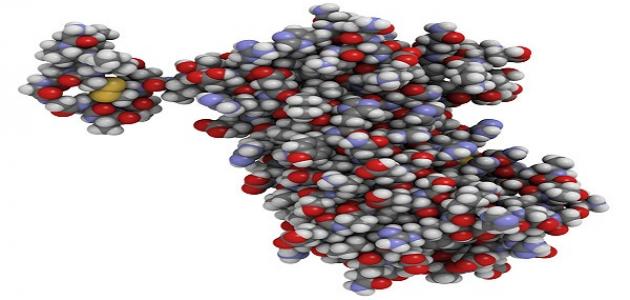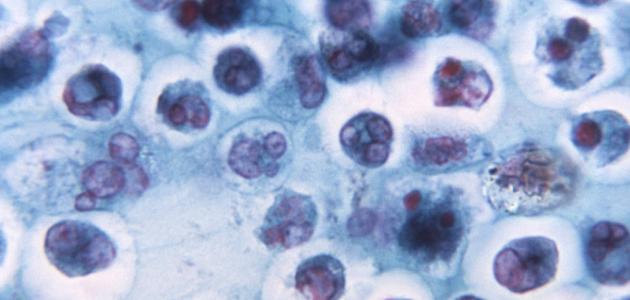hormones
Hormones are chemical compounds secreted by the endocrine glands into the bloodstream. These compounds control various functions and vital processes in the body, such as regulating the heart rate, the metabolism process through which the energy needed to carry out the various functions of the body is generated from the foods eaten, appetite control, mood, And the various sexual functions, the process of reproduction, growth, development, regulation of the sleep process, and many other functions.
Endocrine
There are many endocrine glands that secrete hormones and are part of the endocrine system. These glands include the following:
- Hypothalamus: (In English: Hypothalamus) This gland is responsible for body temperature, hunger, thirst, mood, sleep, and sex. It is also responsible for regulating the secretion of hormones from other glands.
- Parathyroid glands: Parathyroid gland These glands control the amount of calcium in the body.
- Thymus: (in English: Thymus) This gland produces T cells, in addition to playing a role in regulating the function of the adaptive immune system.
- Pancreas: Pancreas: This gland produces insulin, which regulates blood sugar levels.
- Thyroid: Thyroid hormones are associated with calorie burn and heart rate.
- Adrenal: (English: Adrenal gland) The adrenal glands produce hormones that control sexual desire, in addition to secreting cortisol, a hormone that is released in the event of stress.
- the pituitary gland: The pituitary gland is called the master of the endocrine glands, as it regulates the work of other glands, and it also secretes growth-stimulating hormone.
- Pineal gland: Pineal gland: This gland produces a hormone that affects sleep.
- ovaries: (in English: Ovaries) Women's ovaries secrete many hormones, including estrogen, testosterone, and progesterone.
- Testicles: (English: Testes) The testicles secrete male hormones such as testosterone, in addition to producing sperm.
hormone functions
Parathyroid hormones
The parathyroid glands secrete parathyroid hormone, which increases the concentration of calcium when its levels are low in the blood. This hormone stimulates bone cells to release calcium from the bones into the blood. It also reduces the loss of calcium through urine, and stimulates the production of the active form of vitamin D in the kidneys. Which facilitates the absorption of calcium from the intestine.
Read also:flu symptomsPancreatic hormones
The pancreas secretes the hormone insulin, as we mentioned earlier, which regulates many vital processes in the body, and among these processes are the following:
- Metabolism and obtaining energy from food.
- Store glucose in fat, muscle, and liver cells to use when needed.
- Helping body cells use glucose as an important source of energy.
- Helping liver cells to manufacture fatty acids.
thyroid hormones
Thyroid hormones affect all parts of the body, and this is explained in detail:
- Regulating metabolism: Thyroid hormones stimulate many metabolic processes, which causes an increase in the basal metabolic rate. Thyroid hormones stimulate fat metabolism, which leads to an increase in the concentration of fatty acids in the blood. Inside the cells under the influence of the hormone insulin, and stimulate sugar synthesis and glycogenolysis (in English: Glycogenolysis) to increase the level of sugar in the blood.
- Development: Thyroid hormones are essential for the development of the brains of fetuses and newborns.
- the growth: Thyroid hormones, along with growth hormone, are necessary for the normal and proper growth process in children, as a lack of thyroid hormones leads to growth retardation.
- Other roles: There is hardly any organ in the body that is not affected by the thyroid gland, and other functions of the thyroid gland include the following:
- Regulating the work of the heart and blood vessels: Thyroid hormones increase the heart rate and the strength of its contraction, which allows blood to be pumped in a greater amount, and it also promotes the expansion of blood vessels, which leads to enhanced blood flow to many organs.
- Regulating the central nervous system: Thyroid hormones affect the mental state, as a decrease in the concentration of these hormones leads to slow mental processes, while an increase in them leads to feelings of anxiety and nervousness.
- Regulation of the reproductive system: Thyroid hormones affect the ability to reproduce, and low levels may lead to infertility.
Adrenal hormones
The adrenal gland secretes many hormones, including cortisol, as cortisol regulates many body functions, as the hormone cortisol regulates the body's response to dangerous situations, stimulates glucose metabolism, regulates blood pressure in the body, and reduces inflammation in the body. The adrenal glands secrete the hormone aldosterone, which regulates blood pressure through many roles, as it increases the concentration of sodium by reabsorbing it from the kidneys and colon, and increases the absorption of water by the kidneys, and accordingly increases blood volume, which leads to high blood pressure.
Read also:Fourth month vaccinationPituitary hormones
The pituitary gland secretes many hormones, which affect many glands and cells, and among these hormones are the following:
- Adrenocorticotropic hormone: Adrenocorticotrophic hormone (ACTH) stimulates the adrenal glands to secrete cortisol.
- TSH: Thyroid-stimulating hormone (TSH) stimulates the thyroid gland to secrete its own hormones.
- Luteinizing Hormone: Luteinising hormone (LH) and follicle-stimulating hormone (Follicle-stimulating hormone) These two hormones control reproduction and sexual characteristics, stimulating the ovaries to produce estrogen and progesterone, and the testes to produce testosterone and sperm.
- prolactin hormone: (in English: Prolactin) This hormone stimulates the breasts to produce milk, and its quantity increases dramatically during pregnancy and breastfeeding.
- Growth hormone: (in English: Growth hormone) This hormone stimulates the process of growth and regeneration of damaged cells.
- Oxytocin: (in English: Oxytocin) This hormone affects uterine contractions during childbirth, and helps to secrete milk afterwards.
Gonadal hormones
The gonads include the testicles and ovaries, and the hormones they secrete perform the following functions:
- Estrogen: The estrogen hormone stimulates the growth of the follicle during the development of the egg, stimulates the growth of the vagina to its normal size at puberty, increases the thickness of the vaginal wall, and increases the acidity of the vagina, which reduces the incidence of bacterial infection, and estrogen maintains the mucous membrane that lines the uterus, and increases the size of the endometrium, It enhances blood flow to it, and stimulates the muscles of the uterus to contract during childbirth.
- progesterone: The progesterone hormone helps prepare the lining of the uterus to receive the fertilized egg and start the pregnancy process. It also prevents ovulation during pregnancy, stimulates the growth of the milk-producing glands in the breast during pregnancy, and regulates the menstrual cycle.
- testosterone: Testosterone in men regulates a range of functions, including sperm production, sexual desire, and controls bone density, muscle size and strength, fat distribution, and red blood cell production. Although it is a male hormone, it plays a role in regulating sexual desire, bone density, and muscle strength in women.









